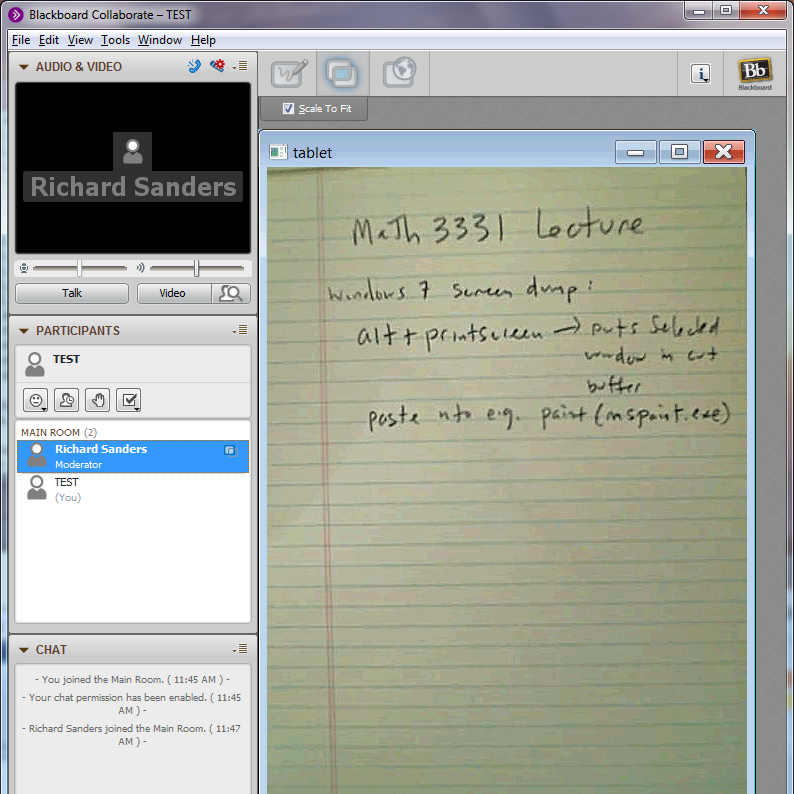In the modern educational landscape, technology plays a pivotal role in enhancing the learning experience. One tool that stands out is Blackboard UH, a comprehensive learning management system used in many universities and colleges around the globe. This system is designed to facilitate online learning, improve communication, and offer a wide range of resources for students and educators alike. In this article, we will explore how Blackboard UH transforms the way we learn, making education more accessible, interactive, and efficient.
What is Blackboard UH?
Overview of the Platform
Blackboard UH is a digital platform tailored for higher education. It provides educators with tools to create, manage, and deliver coursework in an online environment. Features include course management, grading systems, and content sharing. This system integrates various learning methods, including blended learning, fully online courses, and flipped classrooms. The goal is to create a dynamic and responsive educational experience.
Key Features
Some key features of Blackboard UH include grade management, discussion forums, and multimedia content delivery. Users can easily access syllabi, assignments, and resources from any device with internet connectivity. Additionally, Blackboard UH supports different file formats, allowing educators to upload documents, videos, and presentations without hassle. Its user-friendly interface ensures that both students and instructors can navigate the system smoothly.

Facilitating Communication
Enhanced Interaction
One of the standout aspects of Blackboard UH is its ability to facilitate communication between students and faculty. The platform supports messaging and discussion boards, enabling real-time conversations and feedback. This immediate access makes it easier to clarify doubts or engage in deeper discussions about coursework.
Building a Learning Community
Blackboard UH encourages collaboration among students. Through group projects and forums, learners can share ideas and work together on assignments. This builds a sense of community, essential for online learning. Students no longer feel isolated; they can share their thoughts and learn from their peers, enhancing their educational experience.
Streamlining Course Management
Simplified Task Management
For educators, Blackboard UH simplifies the course management process. Instructors can easily create assignments, set deadlines, and distribute materials through the platform. This streamlined approach saves time and helps educators stay organized. The built-in calendar feature alerts both students and instructors about upcoming deadlines and important dates.
Comprehensive Grading System
Blackboard UH offers a built-in grading system that provides immediacy in performance evaluation. Educators can quickly grade assignments and quizzes, providing instant feedback to students. This timely feedback allows students to understand their performance better and make necessary adjustments in real time. The system also generates analytics and reports, making it easier for instructors to track student progress over time.

Supporting Diverse Learning Styles
Customizable Learning Paths
Every student learns differently, and Blackboard UH recognizes this by supporting various learning styles. Educators can create customizable paths for their students, allowing them to learn at their own pace. Some may prefer reading materials, while others may benefit from video lectures or interactive exercises.
Resources for All Learners
Additionally, Blackboard UH provides access to a diverse range of resources. These can include multimedia presentations, simulations, and external links to research materials. This variety enhances understanding and engagement, catering to the needs of all types of learners. The goal is to create an inclusive environment where every student has the tools they need to succeed.
Data-Driven Insights
Tracking Progress
Blackboard UH includes robust analytics features that empower both instructors and students. Educators can track class performance, identifying who is struggling and who is excelling. This data allows for meaningful interventions, ensuring that no student falls behind.
Student Accountability
For students, access to performance analytics helps foster accountability. They can monitor their progress in real time and identify areas needing improvement. This self-assessment encourages proactive learning strategies. By engaging with their own data, students are more likely to take ownership of their education.
Enhancing Flexibility and Accessibility
Anytime, Anywhere Learning
One of the key advantages of Blackboard UH is its flexibility. Courses can be accessed at any time and from anywhere with an internet connection. This adaptability is especially beneficial for non-traditional students, such as working professionals or those with family responsibilities.
Diverse Learning Environments
Blackboard UH also supports various learning modalities. Whether it’s fully online classes, hybrid courses, or face-to-face meetings supplemented with online resources, the platform accommodates each teaching style. In doing so, it removes barriers to education and allows for a more personalized learning experience.

Encouraging Lifelong Learning
Preparing for Future Careers
In today’s fast-paced world, lifelong learning is essential. Blackboard UH fosters this mindset by providing tools that encourage continuous education. Students can easily access past materials and revisit the coursework even after the class has ended.
Building a Culture of Continuous Improvement
Educators are also able to update and modify course materials based on analytics and feedback. This process promotes a culture of continuous improvement in curriculum design. Faculty can adapt their teaching methods according to what works best, ensuring that their students receive the highest quality of education.
Driving Engagement through Interactive Content
Promoting Active Participation
Another prominent feature of Blackboard UH is its ability to drive engagement through interactive content. Instructors can embed quizzes, polls, and interactive elements directly into course materials. These features encourage active participation, prompting students to think critically and engage with the content. For instance, using real-time polling during lectures allows educators to gauge understanding and make immediate adjustments to their teaching strategies. This fosters a more dynamic classroom environment, whether in-person or online, motivating students to stay involved in their learning journey.
Gamification Elements
Blackboard UH also supports gamification elements, which can make learning more enjoyable. By introducing elements like badges, leaderboards, or rewards for completing certain tasks, educators can motivate students to participate actively. This approach not only captures students’ interest but also encourages healthy competition and peer motivation. By utilizing gamification, educators create a stimulating atmosphere that makes education feel less daunting and more accessible, thus capturing students’ enthusiasm for learning.
Promoting Collaborative Learning Experiences
Group Projects and Collaborative Spaces
The collaborative features of Blackboard UH facilitate group projects and teamwork among students. Instructors can create dedicated spaces for groups to communicate, share resources, and work on assignments together. These collaborative areas promote teamwork and enable students to develop critical interpersonal skills that are essential in the workforce. Working together on projects also helps to deepen understanding, as students learn from one another.
Peer Feedback and Review
Additionally, Blackboard UH encourages peer-to-peer feedback through built-in tools. Students can offer constructive critiques on each other’s work, fostering a sense of community and shared learning. This not only enhances the learning experience but also builds confidence as students become more comfortable sharing their insights and suggestions. By integrating these collaborative elements, Blackboard UH enhances the educational experience, making it not just about individual study but a collective journey toward knowledge.
Conclusion
Blackboard UH has significantly transformed the way we learn by enhancing communication, streamlining course management, supporting diverse learning styles, and facilitating flexibility in education. Both educators and students benefit from the extensive features this platform offers, making learning more accessible and efficient. As technology continues to advance, platforms like Blackboard UH will play an increasingly vital role in the landscape of education. By embracing these tools, we can foster a culture of continuous improvement and adaptability in our learning environments. Whether you are a student aiming for personal growth or an educator looking to enhance your teaching methods, Blackboard UH offers the resources you need to succeed.
